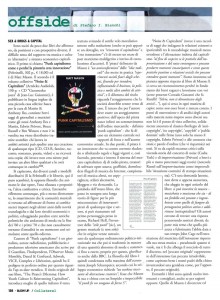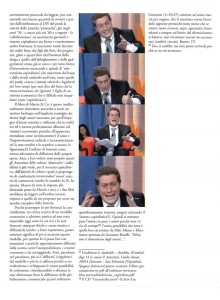Review by Blake Hargreaves
April 29th, 2010 by mattinSept Ames (Montreal)
Nirvana in Negative
Noise & Capitalism and the aesthetics of academia
In 2007 I was invited to the 40th anniversary party of CTV, Canada’s dominant media organization, by mistake. Sitting there with my date, drinking quietly in a corner while MPs and anchorpersons from across the country mingled and unembarrassedly commented on us (“You guys look so stylish! You must be from Montreal”), I suddenly spotted a well-dressed but bleary and lost-looking old feller. No sooner had I realized that eye contact might be a mistake, then he’d locked his sights on us and orbit became entry. He eventually introduced himself as the President of CTV Newsmedia, to which I was tempted to reply “yeah, and I’m Donald Duck” but I kept it in check and exchanged pleasantries until he was quickly bored of us.
When I learned this was in fact Bob Hurst, president of CTV Newsmedia, I did what enterprising young folks are supposed to do and tried to get a meeting with him so I could ask for a job. It was a disaster; he was much sharper then, and between eating a sandwich and checking email, in his office of ten thousand television sets, he withdrew my life history from me. The peak of the discussion came when I got to describing my undergraduate thesis, which I very generously described as a study of “the aesthetic differences between works of composition and works of improvisation”. He pretty much froze. Now I had gone and done it. “Really?…. what did you come up with?” The incoherent babbling episode that followed, with references to Jackson Pollock, the Rolling Stones, and “spirit” went longer than I’d care to remember before he finally showed mercy and cut me off by telling me in a cool low voice that if I hoped to be a journalist I had better learn how to explain something.
The thesis was really just a recording of my composition process and the research accompanying it, and it was that process that was a study in the differences between improvisation and composition. I never sent it to get bound, as it is meant to be, because when I finished the essay I decided the purpose of this essay was probably to show me what would become one of the fundamental questions with which I would fill my earth-bound days, so why not spend a lifetime on it instead.
In Noise and Capitalism, a new book of essays published by Arteleku, improvisation acts as a stand-in for the scene called noise or noise music in many of the pieces, and several tease out thoughts on the nature of spontaneity in a material and capital culture, and its political ramifications for those who engage in such activity, for their audience, and society at large.
The main promoter of the book, and contributor of its first and last essay, is enthusiastic, no-irony performer and all around good person Mattin, a performance artist who I much admire. He’s the pitchman for this assembly of musings on noise and capitalism from a dozen or so chatter-borgs who have produced enough prog-talk to thoroughly stone anyone. It comes in the form of an academic journal, with an overload of footnotes, references to theorists of varying popularity, and large words and larger concepts are hoisted around like so many steel storage containers at port, threatening to crush the reader in their brutish lack of clarity and coherence. Read the rest of this entry »



